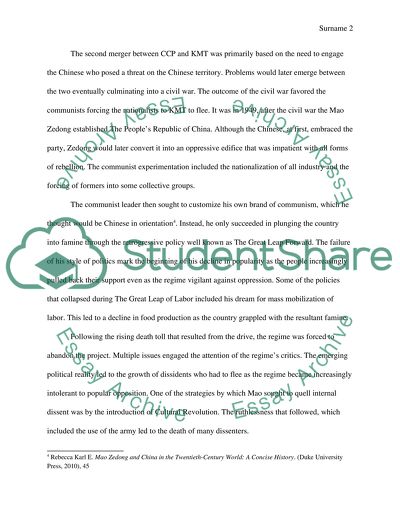Cite this document
(“Mao Zedong Essay Example | Topics and Well Written Essays - 1000 words”, n.d.)
Retrieved de https://studentshare.org/history/1459514-mao-zedong
Retrieved de https://studentshare.org/history/1459514-mao-zedong
(Mao Zedong Essay Example | Topics and Well Written Essays - 1000 Words)
https://studentshare.org/history/1459514-mao-zedong.
https://studentshare.org/history/1459514-mao-zedong.
“Mao Zedong Essay Example | Topics and Well Written Essays - 1000 Words”, n.d. https://studentshare.org/history/1459514-mao-zedong.


